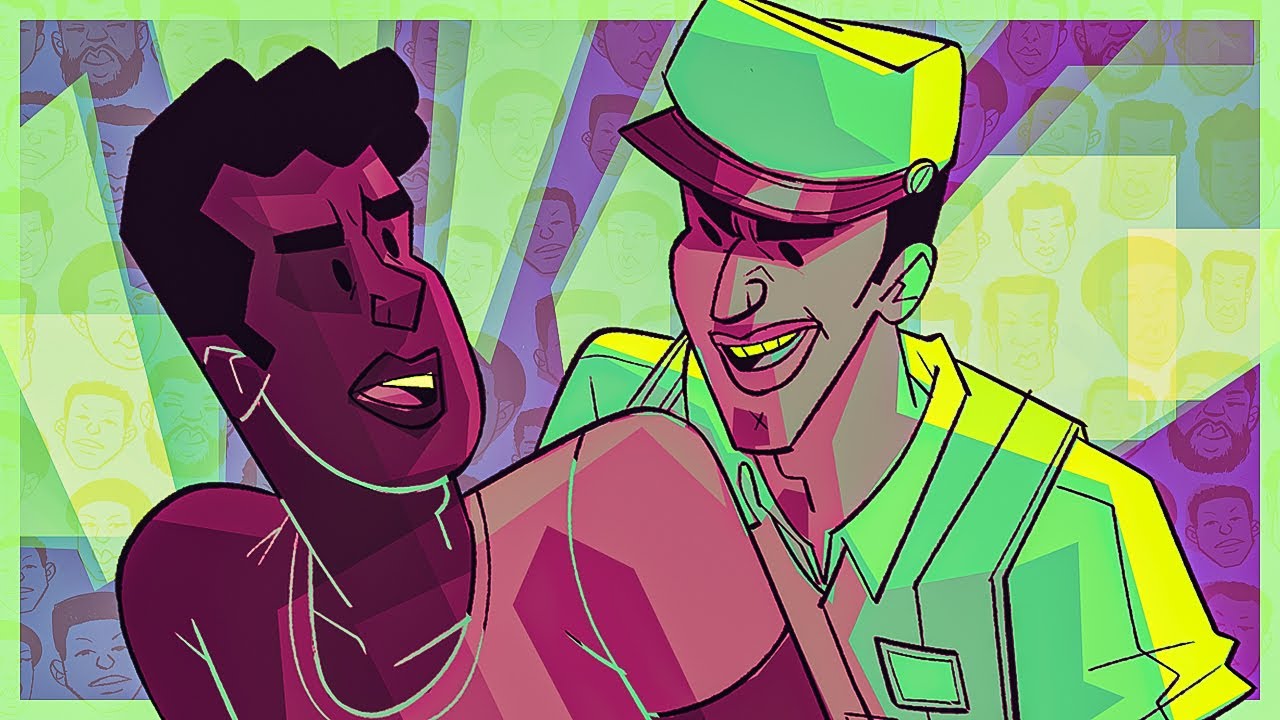Conjuração Baiana (Principais FATOS)
Summary
TLDRThe Bahian Conspiracy, or Tailors' Revolt, was a 1798 popular political movement in Salvador, Brazil, driven by the lower classes, including enslaved blacks, free whites, and mixed-race people. Inspired by Enlightenment ideals and other revolutions, it sought to establish a democratic republic in Bahia. Leaders like João de Deus and Manuel Faustino dos Santos Lira led the movement, but it was swiftly suppressed after pamphlets calling for liberty and equality were distributed. Despite its failure, the Bahian Conspiracy influenced Brazil's independence, the Malê Revolt, and the abolition of slavery.
Takeaways
- 😀 The Bahian Conspiracy, also known as the Tailors' Revolt, was a popular political movement in Salvador in 1798.
- 😀 The movement aimed to establish a democratic republic in Bahia, free of social inequalities and politically and socially inclusive.
- 😀 Influenced by the success of the Haitian Revolution, the Enlightenment, and the independence of the United States.
- 😀 The movement was sparked by the distribution of pamphlets in Salvador on August 12, 1798, advocating for liberty, equality, fraternity, and a republic.
- 😀 The revolt's main leaders were tailors João de Deus and Manuel Faustino dos Santos Lira, who represented the lower social classes, including enslaved blacks and poor people.
- 😀 The movement also had support from soldiers like Luiz Gonzaga das Virgens and Lucas Dantas.
- 😀 Unlike the elite-led Minas Gerais Conspiracy, the Bahian Conspiracy was a popular movement with abolitionist ideas.
- 😀 The authorities quickly suppressed the movement after the pamphlet distribution, arresting some members and forcing them to denounce others.
- 😀 Four of the poorest participants were sentenced to death, marking a tragic outcome for the movement.
- 😀 Despite its failure, the Bahian Conspiracy influenced significant historical events like Brazil's independence, the Malê Revolt, and the abolition of slavery.
Q & A
What was the Bahian Conspiracy, and why was it significant?
-The Bahian Conspiracy, also known as the Tailors' Revolt, was a popular political movement in 1798 in Salvador, Brazil. It was significant because it represented a revolt by lower social classes, including enslaved people, free blacks, and poor whites, and it was influenced by Enlightenment ideals and global independence movements, such as those in Haiti and the United States.
What historical context led to the Bahian Conspiracy?
-The movement took place during colonial Brazil, when Brazil was still subordinated to Portugal. Salvador, the capital at the time, faced severe social and economic issues. Additionally, the transfer of the capital to Rio de Janeiro in 1763, along with the influence of the Haitian Revolution and Enlightenment ideas, contributed to the uprising.
Who were the key leaders of the Bahian Conspiracy?
-The movement was led by tailors João de Deus and Manuel Faustino dos Santos Lira, who were central figures. Other important leaders included soldiers Luiz Gonzaga das Virgens and Lucas Dantas.
Why was the movement called the 'Tailors' Revolt'?
-The movement was called the 'Tailors' Revolt' because its primary leaders, João de Deus and Manuel Faustino dos Santos Lira, were tailors. The name also served to belittle the movement by associating it with a group of lower social status.
What was the content of the pamphlets distributed during the Bahian Conspiracy?
-The pamphlets distributed during the Bahian Conspiracy called for a fight against the established order, proclaiming ideas of liberty, equality, fraternity, and the creation of a democratic republic without social divisions.
What was the social composition of the Bahian Conspiracy?
-The movement was composed mainly of enslaved blacks, poor whites, free blacks, and mixed-race individuals from various professions, with a significant portion of the leadership coming from lower social classes.
How did the authorities respond to the Bahian Conspiracy?
-The authorities responded quickly to the distribution of pamphlets by arresting key figures involved in the movement. Some were forced to reveal the identities of other participants, leading to the suppression of the revolt.
What was the outcome of the Bahian Conspiracy?
-The Bahian Conspiracy ended in failure, with four participants, all from the lower social classes, sentenced to death. Despite this, the movement influenced later revolts and the independence of Brazil.
How did the Bahian Conspiracy influence the history of Brazil?
-The Bahian Conspiracy had a significant impact on the course of Brazilian history. It inspired movements such as the Malê Revolt, the independence of Brazil, and the eventual abolition of slavery in the country.
What were the key ideas that inspired the Bahian Conspiracy?
-The Bahian Conspiracy was heavily influenced by Enlightenment ideas, the French Revolution, and the success of the Haitian Revolution, which all advocated for liberty, equality, fraternity, and independence from colonial powers.
Outlines

このセクションは有料ユーザー限定です。 アクセスするには、アップグレードをお願いします。
今すぐアップグレードMindmap

このセクションは有料ユーザー限定です。 アクセスするには、アップグレードをお願いします。
今すぐアップグレードKeywords

このセクションは有料ユーザー限定です。 アクセスするには、アップグレードをお願いします。
今すぐアップグレードHighlights

このセクションは有料ユーザー限定です。 アクセスするには、アップグレードをお願いします。
今すぐアップグレードTranscripts

このセクションは有料ユーザー限定です。 アクセスするには、アップグレードをお願いします。
今すぐアップグレード関連動画をさらに表示

Resumo de História: Inconfidência Mineira e Conjuração Baiana (Débora Aladim)

TENENTISMO e Coluna Prestes - Resumo desenhado

🎥 Documentário - Luiz Gama: A Luta Pelo Direito no Brasil da Escravidão - Episódio 1

Revolta dos Malês - Brasil Escola

O BRASIL DEPOIS DA ABOLIÇÃO DA ESCRAVIDÃO - ft RAEL DA RIMA

Plessy v Ferguson and Segregation: Crash Course Black American History #21
5.0 / 5 (0 votes)
